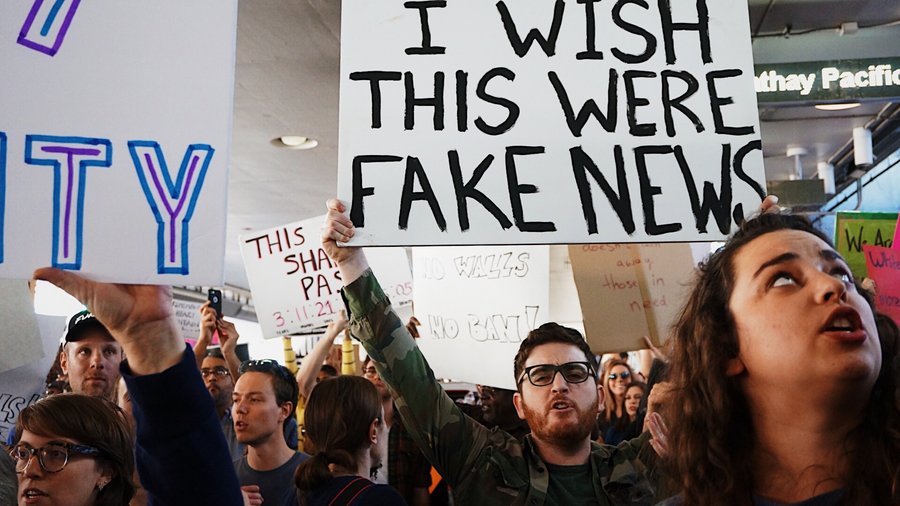Latest Salzburg Academy on Media & Global Change workshop considers the value of truth, transparency, and media literacy in combatting misinformation and declining public trust
Misinformation has created and accentuated divides between communities. Global protests in response to the COVID-19 pandemic are indicative of wider social unrest and declining public trust, fueled by a dangerous misrepresentation of facts and fiction that threatens the future of truth itself.
The last workshop in an online series designed to investigate the impact of protest and pandemic, entitled, Has Misinformation Undermined Public Trust and Democracy?, considered citizens and institutions’ roles in safeguarding democracy.
Roman Gerodimos, associate professor of global current affairs, Bournemouth University, UK, explained how information had been strategically weaponized by governments, intelligence services, and rogue actors to exploit fault lines between communities.
He referenced the coordinated digital misinformation campaign after the 2018 Salisbury poisoning of former Russian intelligence agent Sergei Skripal and his daughter Yulia. Gerodimos termed this hybrid threat “the New Cold War.”
He said, “Now we know it was three high-ranking officers of the Russian military intelligence service, but at the time RT, Sputnik, and other Russian media produced 46 different theories. Some of them were quite absurd.
“What it teaches us is the point of misinformation. It’s not to promote one version of the truth. The point is to be so confused about what is truthful that you ultimately abandon the idea that truth is attainable and important.
“We need dissent and dialogue, which is about the pursuit of truth and the role of citizens as stakeholders. What we’re seeing through misinformation is the exact opposite. It’s called power politics, and it is disempowering citizens from being critical thinkers. The fastest way to shut down a democracy is to shut down dissent”.
Gerodimos also introduced his new Deterrence documentary series that explores these issues and the North Atlantic Treaty Organization’s (NATO) role in European security. The project was co-created by staff and students from Bournemouth University and can be viewed for free here: https://www.deterrencethemovie.com/
Pablo Martinez Zarate, professor of documentary film and digital narrative, Iberoamericana University, Mexico, highlighted the difficulty of responding to misinformation in a partisan environment, where traditional narrative strategies are blocked by the opposition and media organizations may be viewed cynically.
He proposed the need for counterstrategies to reach across fragmented communities, particularly as the COVID-19 pandemic has widened these divisions. Zarate also discussed political polarization, characterized by US President Donald Trump.
Zarate said, “We have to stare at the face of difference. Sometimes it’s really hard to share political views that under our perspective are the right views when there is political discourse or legitimization of this cynical, alternative view.
“In other words, how can we build narratives that convince people who do not agree with the narratives we are sharing, and not only [reach] people that already agree with our world views?
“We have enormous challenges today after the pandemic that can push us to alternative solutions that we didn’t necessarily anticipate before.
“In order to escape this huge vortex, we need to question centers of power and meaning. We need to recognize that it takes sacrifice, a way of sacrificing our own view in order to recognize alternative and difference.”
Zarate shared the interactive documentary Forensic Landscapes, which explores the complex issue of forced disappearances in Latin America through innovative virtual storytelling. Zarate and Anne Huffschmid directed the project. It can be viewed for free here: https://forensiclandscapes.com/
Paul Mihailidis, the program director of the Salzburg Academy on Media & Global Change, then encouraged open dialogue in a half-hour discussion between speakers and participants.
Gerodimos explained the need for a pluralism of news sources and some method of regulation to preserve freedom. Zarate described the importance of shared experience as a source of truth. Both speakers agreed that critical thinking, fostered by media literacy, is crucial in combatting misinformation and rebuilding public trust.
Gerodimos said: “If we agree that we want ‘these’ consequences over ‘those’ ones, and we also agree that we want people to be participants in that process, essentially you’re talking about the construction of democracy, more or less, then I think media literacy or that type of engagement is indispensable.”
Zarate added: “Media literacy, I totally agree, has to go beyond a set of skills … the skills will change in 10 years, they might change in 20, so if we focus more on ideas like self-realization, I think that could boost media literacy further.”
Mihailidis ended the session by thanking everyone who attended this workshop series.
He concluded, “We’re all really excited by the level of engagement that went beyond our expectations. That’s the power of our community and what we can do, even in this time of protest and pandemic.”


